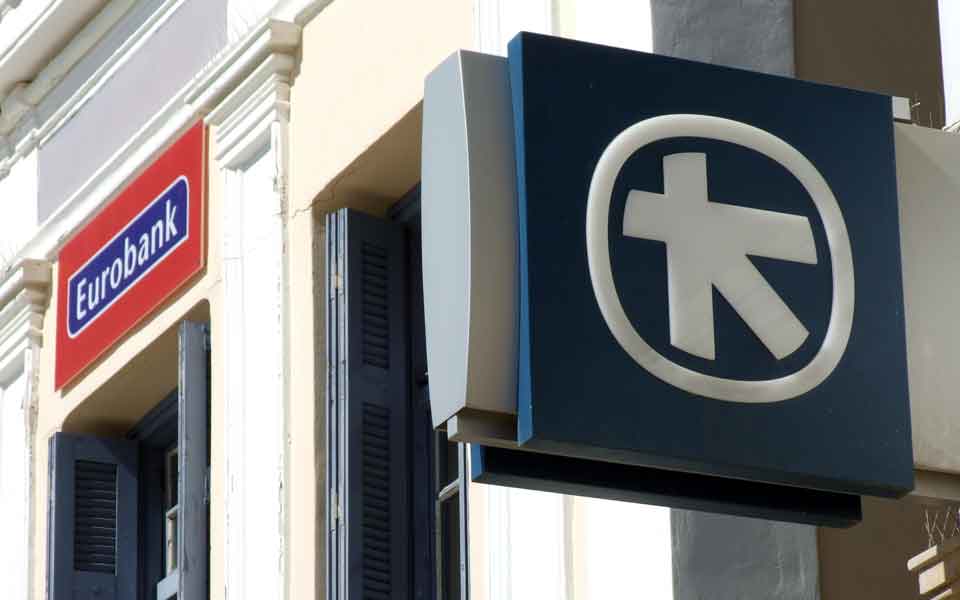SSM wants to see NPEs below 10 pct

Greek banks are under strong pressure to reduce their nonperforming loans to below 10 percent of total loans, from the very high current level of 45 percent, by far the worst rate among eurozone banks.
The pressure from the European regulating authorities will be reflected in the new plans for the reduction of nonperforming exposures (NPEs) that lenders have to submit next month, and which according to all indications will incorporate more ambitious and more long-term targets, covering the period up to 2021.
This intensification in efforts is dictated by the realization that even if the plans agreed to date, concerning the period up to 2019, are fully implemented, the ratios of bad loans and NPEs – which include nonperforming loans and those on the brink of turning “bad” – at domestic banks will stand at the particularly high levels of 26.1 percent and 39.7 percent respectively, far above the acceptable level of 5 percent in the eurozone.
The new bad loan reduction targets that banks will submit to the European Central Bank’s Single Supervisory Mechanism (SSM) in September, to be updated in March 2019, will concentrate efforts on more front-heavy actions, prioritizing package sales. This is a practice used extensively by Italian, Spanish and Portuguese lenders, and in the view of the monitoring authorities produces immediate results.
Banks’ new plans will also place emphasis on expanded efforts for the repayment of loans, which will require generous haircuts in order to render the settlement proposals offered to borrowers more effective. These partial write-offs will focus on loans with no collateral, especially consumer loans and small corporate loans. There are also plans for the settlement of mortgage loans that will incorporate a debt haircut based on the commercial value of the property concerned.
Furthermore, banks will increase their focus on property auctions with the purpose of increasing their number and variety, as according to lenders’ calculations some 20,000 properties will be up for liquidation in the next three years. The revenues from auctioning those properties are estimated at 2 billion euros, but banking sources note that the benefit will be much greater, as a significant number of borrowers who until recently have avoided settling their arrears will not be forced to make repayment arrangements to avoid the liquidation of their assets.
Total loan write-offs will only be banks’ last resort in the effort to contain bad loans, as according to SSM’s views this as an easy solution that weakens efforts toward the more active management of nonperforming loans and will be utilized as an instrument only if all other measures fail to bear fruit.
The effort for a more front-heavy reduction of NPEs through the sale of loan portfolios tops of the agenda of objectives, and Greek banks have already announced the sale of major packages.
National Bank has sold its Earth portfolio. Eurobank has completed the sale of its Eclipse portfolio, and is proceeding with the sale of Zenith. Alpha Bank has parted with its Venus package, and is moving ahead with the sale of Arctos and Amoeba, the latter being the first portfolio with collateral to be transferred to a major fund.
To date, the packages transferred add up to some 16 billion euros (total value including interest), while additional loan packages with a nominal value of 4.7 billion are expected to be transferred by the end of 2018.
The new commitments banks will make regarding the sale of loans will raise the annual target to 10 billion euros, and although the mass loan concessions they are making will allow lenders to relieve their financial reports of huge volumes of bad loans, they also produce immediate losses. Therefore, the effort to realize a more front-heavy reduction of NPEs, either via portfolio sales or loan write-offs, will reduce banks’ cash buffers and lead them to additional capital requirements.
Given that the measures for bad-loan reduction will absorb some capital, banks need to get ready to build fresh capital as of 2019, this time with an emphasis on bond issues. Bank officials explain that the reason for this is not only that “the ECB forcefully demands the speedy clear-out of problematic portfolios for banks to implement their strategic role as accelerators of the economy,” but Frankfurt is also insistent on “the return of Greek banks to the markets through bond issues, as only then will they confirm their return to normality,” as they say.
The improvement of the Greek economy and the achievement of steady growth rates are key for the banks’ return to the capital markets, which will allow the local credit system to create stable sources of operating profits and reduce its bad loans. The state is the catalyst for developments, as it will have to pave the way in this direction, continuing its reform effort without backtracking.





